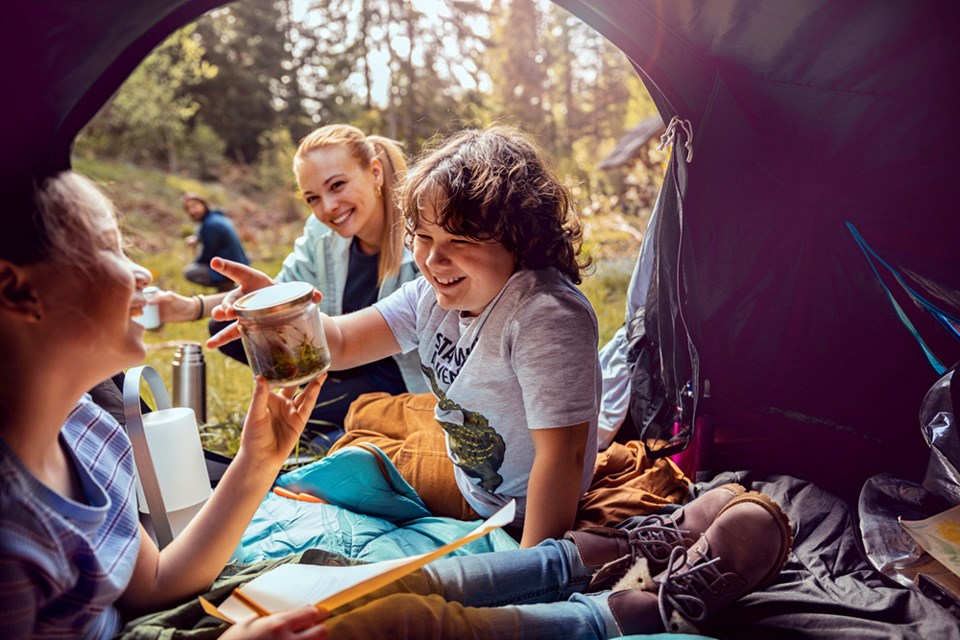These days the beaches, lakes and trails are calling, and we are more than ready to respond with a heartfelt “Yes!”
It’s in our nature to be immersed in nature and we want to keep it pristine for our next visit. All too often, our best laid plans to recreate can tax the planet far more than we ever intended. Getting informed and planning ahead can lighten our tread on the trails and beyond.
Camping is a fantastic way to commune with Mother Nature, unless you leave behind a mess for her to clean up.
Follow the “Pack it in, pack it out” rule, even when it comes to compost. Food scraps and napkins are an eyesore while they degrade and an attractant drawing critters of all sizes to abandoned campsites and trails.
Bring a sealable container to take these home to a backyard composter or for drop off at participating depots. The same goes for recyclables.
After a night of celebrating around a campfire (when they are permitted), the best thanks we can offer the spot that hosted us is to take our drink cans and bottles with us. Having a simple three bin system for separating compost, recyclables and trash as they are created is the easiest way to ensure they get to where they ought to.
Sometimes you just need to get away, even if it’s overnight to a local campsite. Instead of buying all the gear for what might be an annual event, see if friends and family can loan out equipment you don’t have. When you’re sure you want to invest, look into outdoor gear at secondhand outlets for a great selection of lightly used, reasonably priced gear.
Propane tanks are ubiquitous during the summer, but they do not belong in curbside or depot recycling. When your small tank is empty or a large tank needs retiring, bring them to the transfer station and advise the attendant of what you have.
Canisters are highly flammable even when empty as they remain under pressure. Each year fires are started in recycling bins when improperly disposed of pressurized tanks explode during the baling process.
With the sun blasting, some are slapping on sunscreen to prevent a night of tossing and turning. Before we run to the store to stock up, consider these low waste alternatives.
Seek shade in peak sun periods. Hats and clothing are also not to be underestimated. When using these for sun protection (SPF), the best options are tight weaves of silk, wool, polyester or nylon. Keep fabric dry as wet clothing loses up to 50 per cent of its protective quality.
Also, never overlook the sunbrella – an umbrella used for shade. You might even bling it up with the kids to get them into using it.
If a squeeze tube of sunscreen lotion makes its way into your life, it must eventually make its way into the garbage can as squeeze tubes are not recyclable in BC.
When choosing a sunscreen, avoid ones containing compounds harmful to ocean life as well as those that contain known hormone disruptors, like oxybenzone. Natural sunscreens can be made by combining ingredients such as coconut oil (SPF 5), with zinc oxide (SPF 2 to 20, depending on ratio used), red raspberry seed oil (SPF 25 to 50) or carrot seed oil (SPF 35).
There is still a lot of summer left to enjoy. Let’s make sure we aren’t wrecking creation while we are recreating.
Let’s Talk Trash is qathet Regional District’s waste-reduction education program. For more information, email [email protected] or go to LetsTalkTrash.ca.



